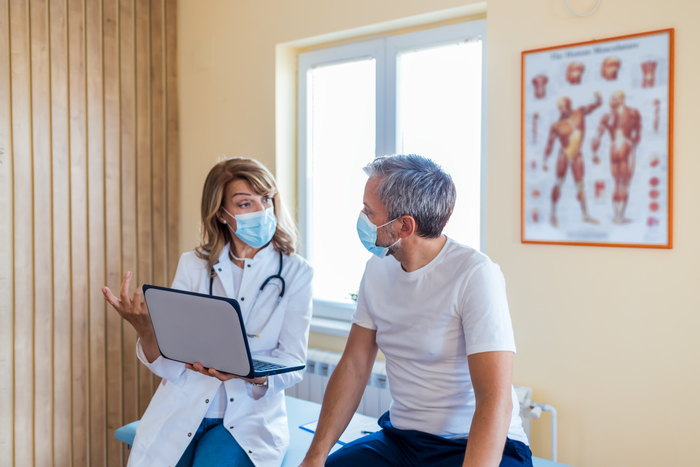Everything you need to know for a smooth doctor's visit
February 16, 2023
 Healthcare avoidance isn’t a new concept, but its increasing popularity is. Many individuals canceled their routine doctor visits during the pandemic, and they still haven’t returned. It’s estimated that 49%* of U.S. adults avoided medical care during the pandemic, citing reasons such as fear, anxiety or financial insecurity.
Healthcare avoidance isn’t a new concept, but its increasing popularity is. Many individuals canceled their routine doctor visits during the pandemic, and they still haven’t returned. It’s estimated that 49%* of U.S. adults avoided medical care during the pandemic, citing reasons such as fear, anxiety or financial insecurity.
Avoiding doctor’s appointments can be an unintentional recipe for disaster – delayed care equals delayed diagnoses, delayed diagnoses equal delayed treatment, delayed treatment can allow a small issue to grow large and worsen outcomes.
If it’s been a while, it’s time you get back to the doctor’s office and take control of your health.
Nervous for your checkup?
Don’t be. A good way to keep stress at bay is to come prepared. You should be ready to speak to your healthcare provider about the following:
- Allergies
- Medications
- Health history (personal and family)
- Lifestyle (diet, exercise, drug and/or alcohol use, smoking)
- Concerning symptoms
When you come to your appointment prepared, it makes the visit quicker and easier, and allows your doctor to make more educated recommendations for your health.
During the appointment, your doctor will do the following:
- Weight check
- Physical examination (looking into your eyes, ears and throat)
- Motor function and reflex tests
- Vitals check (blood pressure, heart and respiratory rate)
- Administer immunizations (if needed)
Your doctor may also need to perform laboratory tests, such as drawing blood.
Recommended Screenings
Depending on your age and risk factors, your doctor may also request that you get certain screenings. The following are recommended depending on gender and age.
Women should:
- Regularly schedule pap tests and pelvic exams to detect cervical cancer.
- Start scheduling mammograms at age 50 to detect breast cancer.
Men should:
- Schedule testicular exams to detect testicular cancer (they’re usually done during a routine physical).
- Start scheduling prostate screenings at age 50 to detect prostate cancer.
Elderly adults should ask their doctor about screening for colorectal cancer, diabetes, heart disease and osteoporosis. If you have pre-existing health conditions, your check-up may look different or be more frequent.
Routine check-ups are simple and effective at identifying problems before they become serious issues, so do yourself the favor and make sure you take them seriously. Your health depends on it.
*Source: https://www.ncbi.nlm.nih.gov/pmc/articles/PMC7499838/
